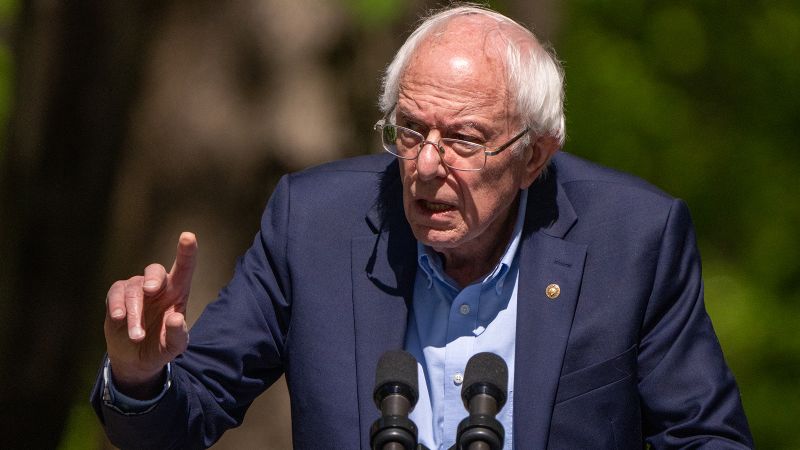Sen. Bernie Sanders voiced his support for protests against Israel’s war in Gaza while condemning antisemitism, Islamophobia, and other forms of bigotry. He described the actions of Israel’s government as unprecedented and expressed concern about the possibility of mass starvation and famine in Gaza. Sanders, who is Jewish, emphasized the need to condemn antisemitism and all forms of bigotry, while also acknowledging the right to peaceful protests on college campuses.
The ongoing war in Gaza has led to a surge in pro-Palestinian protests on college campuses across the United States. Tensions have escalated following Hamas’ attack on Israel, resulting in a retaliatory assault that has claimed the lives of thousands. Reports of antisemitic acts and Islamophobia have increased on campuses, prompting university leaders to address when free speech crosses a line and becomes threatening. Sanders and other politicians have spoken out in support of the right to peacefully protest while condemning hate speech and violence.
Democratic Sen. Chris Murphy also voiced support for campus protests, highlighting the belief among many young people that a fundamental injustice is being perpetrated in Israel. While he recognizes that protests may disrupt the efficient operation of a campus, Murphy believes in protecting the right to peacefully protest. Senate Minority Leader Mitch McConnell, however, raised concerns about protests getting in the way of free speech and advocating for university presidents to maintain control of the situation and push back against antisemitism.
The response of college officials to protests related to the Israel-Hamas war has unfolded amid a global debate over the US role in the conflict and as the race for the White House and control of Congress intensifies. Elite college presidents have faced scrutiny and even been forced out of their positions as political parties vie for moral and political standing. Some critics argue that the reliance on police to handle protests reflects a lack of engagement by officials with student demands, which often include divesting institutional investments from companies supporting Israel or profiting from the war.
The debate surrounding free speech, protest, and antisemitism on college campuses has sparked broader conversations about the responsibilities of university leaders, the role of police in handling protests, and the impact of global conflicts on campus dynamics. While some politicians support the right to protest and condemn hate speech, others express concerns about protests disrupting campus operations and the need to address antisemitism. The intersection of political, moral, and social issues underscores the complexity of navigating discussions around contentious topics on college campuses.













